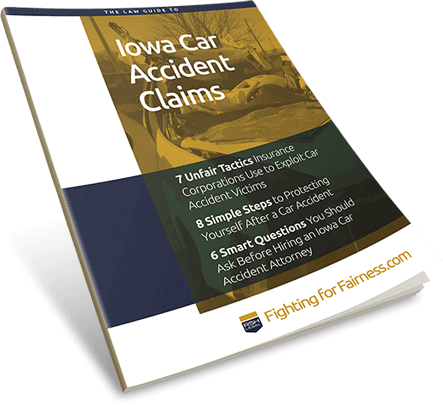It is common for people to wonder if they will be compensated for the pain they were forced to endure because of an injury. In most situations, if the injury was caused by the fault of someone else, the answer is yes. “Pain and suffering” is a category of damage recognized by Iowa law.
What Qualifies as “Pain and Suffering?”
When you hear the phrase “pain and suffering,” you may think of the physical pain that accompanies an injury – for example, the physical pain and discomfort occurs after one has his or her ribs broken in a car crash. That is accurate. Iowa law defines physical pain and suffering as “bodily suffering or discomfort.”
It is important to understand, however, that the legal definition of “pain and suffering” goes beyond physical pain. Iowa law also recognizes mental pain and suffering that accompanies an injury. This can include mental anguish or loss of enjoyment of life caused by an injury. “Mental anguish” is often proven by medical diagnoses such as injury-related depression, anxiety, or post-traumatic stress disorder (PTSD).
Unfortunately, an insurance company, or a jury, is not going to take the victim’s word for it that he or she was in pain or suffered after an injury unless there is substantial proof. They want documentation before they will consider compensation for pain and suffering.
Documenting Your Pain Symptoms
The best way to prove pain and suffering has occurred is by documenting your physical and mental pain symptoms. When dealing with physical or mental pain and suffering, there are a couple of ways to record your symptoms:
1. Visit your medical providers as often as you need until you are healed, or as healed as you’re going to get.
Medical records are the best way to prove pain and suffering to doubtful insurance companies. It’s difficult for an insurance company to deny pain that has been consistently recorded during weeks or months of medical treatment. See your doctors and physical therapists until you are healed and make sure you are accurately reporting your pain during each and every one of those appointments. Do not suffer in silence.
2. Keep a personal journal of your pain.
A journal is a great way to create a daily log of your pain and record any changes in your symptoms. This journal should be kept until all of your injuries have healed. A pain journal can be important when you are later questioned by an insurance company representative about your pain after an injury. A pain journal is no substitute for medical records, but it can be a useful addition to your claim.
How Much is Pain Worth in an Iowa Personal Injury Claim?
In a personal injury case, the amount of compensation you can receive for pain and suffering is calculated separately from any compensation for lost wages or medical bills. What someone receives for pain and suffering is often dependent upon the intensity of the pain, how long it lasted, and the impact it had (or has) on a person’s ability to normally function.
The steps a person takes to address their pain is also an important factor. Insurance companies and juries will rarely believe that an injury victim’s pain is worth compensating if the pain was not significant enough to cause a person to take a pain reliever or go see a doctor. Again, suffering in silence will lead to inadequate pain and suffering compensation.
That is why it’s so important to hire a knowledgeable personal injury attorney. An attorney will give you advice and information on how to accurately document your pain. When it comes time to make a settlement demand, an experienced personal injury attorney can tell you how an insurance company or jury is likely to value your pain and suffering.
If you need a knowledgeable Iowa personal injury lawyer to fight for you, call RSH Legal today at 1-319-774-1534.




